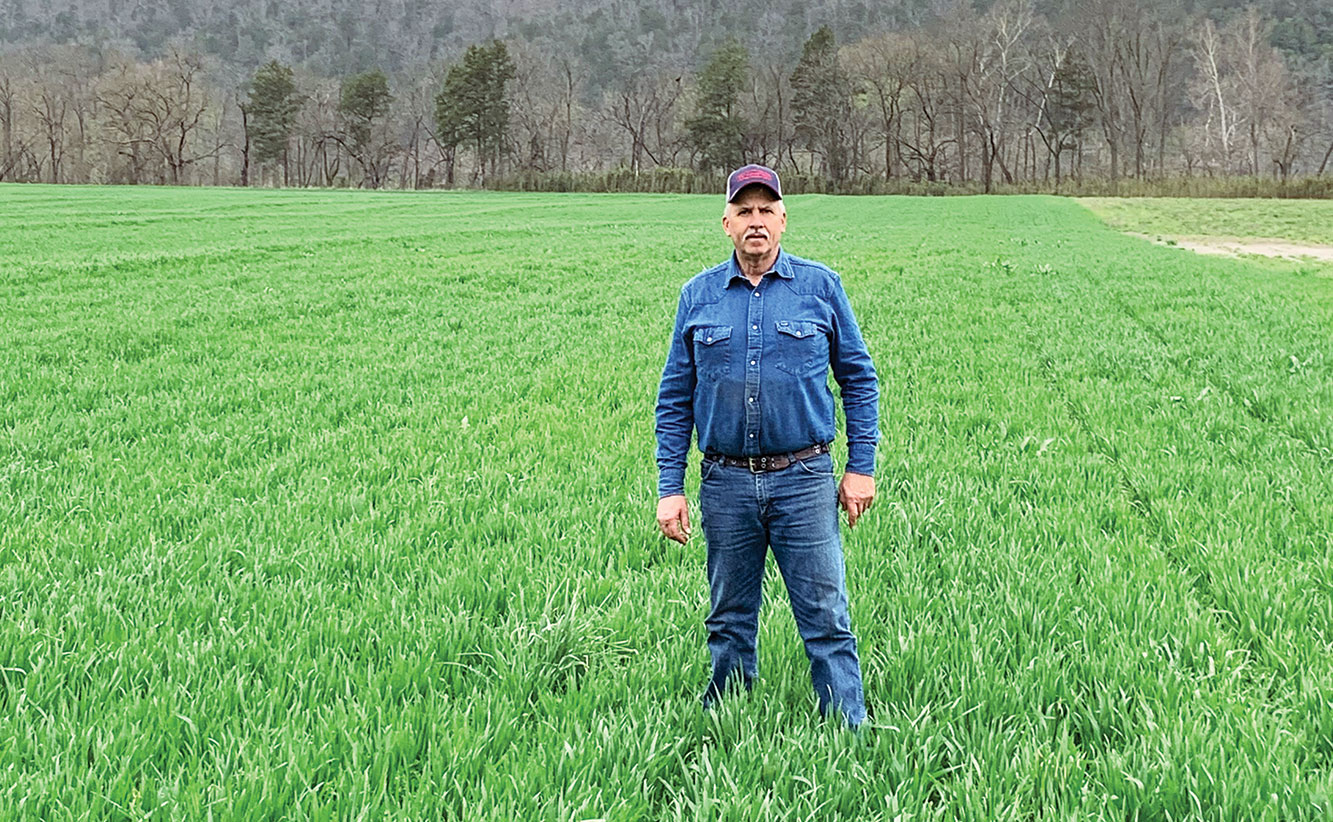
The Wilson Ranch is located near Heber Springs, Ark., in Cleburne County, on 317 beautiful acres.
Rob Wilson grew up in Heber Springs, while his family had a farm in nearby Wilburn. It was there that he learned about farming. He and his family did truck patch gardening, mostly watermelon and cantaloupe, and sold them in Heber Springs. He was active in FFA and FFA judging competition. These were the factors that gave him the desire to have a farm. After he graduated from high school, Rob attended Arkansas Tech University in Russellville, Ark., and then went to dental school at Memphis Dental School in Tennessee. It was in Memphis that Rob met Nancy, who was born and raised in Memphis and had gotten a degree in elementary education. She was the director of an inner city non-profit organization that worked with children. Rob was a volunteer tutor there and that is how they came to meet. After dental school Rob joined the military, Navy/Marines, for three and a half years. Two of their six children were born while they were stationed in Iceland.
After returning from military service Rob and Nan Wilson found a 40-acre homestead, which Rob said, “The Lord allowed us to purchase,” and eventually purchased the acreage around them. One of the acreages has a log cabin on it that is used by family, and as a vacation and weekend rental. Improvements on the homestead included ground up fish organic fertilizer, Neptune’s Harvest Fertilizer, which Rob is a distributor for now. The fertilizer improved the ground and helped some with the drought.
The Wilson Ranch is a diverse and interesting farm. They have a small herd of Katahdin meat sheep for personal use and a few to sell each year. Nan said, “After we lived in Iceland, we acquired a taste for lamb.” The Wilson children show the sheep locally at the fair and at the state fair. They also have six dairy cows and a micro-milking dairy. Rob said their eldest son, Aaron, wanted to have dairy cows for a few years and Rob finally told the boys if they would milk the cows he would buy them. They were thrilled and would get up at 6:30 a.m., every morning and milk the cows, now they have a micro-dairy with milking machines for six cows. They also have chickens that started as a 4-H project. There are horses for riding, working the farm and pulling the family carriage. They also have their own breed of cattle on the farm, a very exciting part of the farm.
Rob wanted to have the old style cattle; solid, short and wide, preferably Angus, so he contacted cattle selector, Gerald Frye. Gerald was able to locate an original semen line from the 1960s at the University of Maryland and was able to obtain some. In addition a trip was made to Scotland to meet with Gourde Suter, who has a rare breed of Aberdeen-Angus cattle. The Angus registry does not recognize them so they are now their own cattle register – Old World Black Cattle Association.
The farm doesn’t look like it has been damaged much by the long summer drought due to the type of irrigation done on the farm. The system used was developed in New Zealand and is the pod system. The systems consist of a series of heavy-duty polyethylene pods spaced at intervals along specially formulated polyethylene tubing. These lines of pods are designed to be moved by an ATV or small tractor along a predetermined route on a daily or as desired basis. The specially formulated tubing is designed to withstand the stresses exerted on it while moving. The pods are adaptable for pastures of any size or shape. They are an affordable way to irrigate ground and especially if there is a limited amount of water available because they can be run off agriculture water or a household well. The Wilson’s make use of their ponds for use of the irrigation system. They can be used to irrigate those hard to reach areas, such as hillside, hard to get to pastureland and rocky uneven hay fields. It’s easy to move them. The hook up goes onto a swivel so there is no unhooking and you don’t need to turn off a pump to move the system. The pods can be nozzled from 2 gallons per minute up to 8 gallons per minute per pod on each line and can be moved once or twice daily putting down 2 inches of water a day. Lines have averaged five to 15 pods depending on water availability. It takes minutes not hours to move this system. The pods work great in a grazing system, won’t bend or break with livestock rubbing and the poly pipe is a non-forming pipe that can be stepped on drove across and not kink.
The Wilson’s are a faith filled, loving family. The children, Aaron, 17; Rachel, 14; Stephen, 12; Luke, 10; Joanna, 6 and John, 4, are well mannered and well spoken. Nan home schools them and Rob teaches them the ways of the farm.







